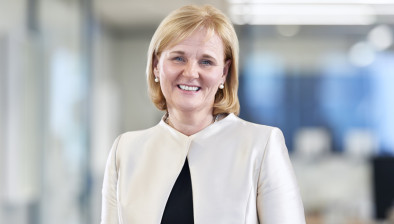Mortgages are being paid off later in last six years, new Aviva research finds

New research from Perth-based insurance giant Aviva has revealed that mortgages are being paid off later than they were 6 years ago.
The research highlights the increasing importance of the role of property wealth in retirement planning and found that compared with 6 years ago, there has been a decrease in property ownership, either outright or with a mortgage, particularly in the younger age groups in this sample. In 2016, nearly a quarter (23%) of 45 – 54 year olds owned their property outright, and that has fallen to 16% in 2022. For 55 – 64 year olds, the respective numbers were 48% and 45%. Overall, this indicates that mortgages are being paid off later than they were 6 years ago.
The research looked into levels of spending, saving and attitudes towards funding retirement in the over 45s, and follows a similar survey run in 2016. It analysed property, and whether the thriving market has affected people’s attitudes towards their property wealth, and whether there has been more mobility, driven by the ability to capitalise on increasing property wealth.
According to Aviva, as people get older, more own outright – in 2016, 13% of 65 – 74 year olds owned with a mortgage, compared with 9% in this age group this year.
Length of tenure in the same property has remained more or less constant over the last 6 years, at just under 20 years, compared with 21 in 2016. In 2002, when they bought their house, the average house price in the UK was £101,000 so this age group have seen a significant increase in the value of their property assets.
Those who own outright have typically been in their property longer – 22 years, compared with 16 for people who own with a mortgage – so the mortgage-free have also benefitted from an additional 6 years of property price rises, building up the equity in their home.
Average house prices have gone up for this age group, and now stands at £287,000, from £264,000 in 2016 - an increase of 8% - and is continuing to rise.3
The effect of housing price rises is even more marked for the older age groups, particularly for those who bought their current property before the housing market boom of the late 1990s. The average house value of the 75+ age group in the survey is £310,000 and the average length of time they have lived there is 28 years. In 1994, when they bought their property, the average house in the UK cost £54,623, which represents a five-fold increase in equity.
The picture is also positive for the 65 – 74 year olds – their average tenure is 24 years, buying their current house in 1998 when the average cost of property was £66,231. Today, this age group’s property is worth, on average, £302,000. This accumulated property wealth, resulting from the growing housing market in the UK, will for most far outstrip the resources they have in savings and investments.
Taking into account the average outstanding mortgage still owing, typically the amount of equity people have in their property is just under £195,000. This compares with the average held in savings and investments, of £52,000 and shows the importance of considering all sources of wealth when planning later life finances.
Matt McGill, managing director, Aviva equity release, commented: “In the years since we last carried out this research, significant events have impacted the way people feel about the economy, their futures and their retirement plans. Understandably, a much larger number of people are now citing worries about the economy as their major concern in retirement.
“Despite all this, the housing market in the UK has been on a steady upward trend since many current retirees bought the home they still live in. But less than half (42%) of the people we surveyed said that their home was worth more than their savings and investments, yet the facts show that people’s property equity is worth almost 4 times as much as their savings.
“It’s likely that people have accumulated more wealth in their property assets than they realise, and looking at ways of utilising this in planning for retirement could have a significant impact for them. It’s an important factor to consider when looking to plan for a comfortable retirement.”







